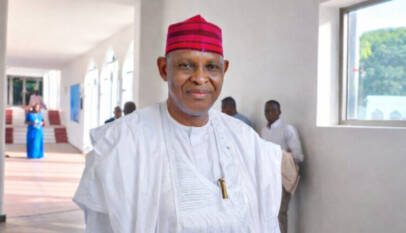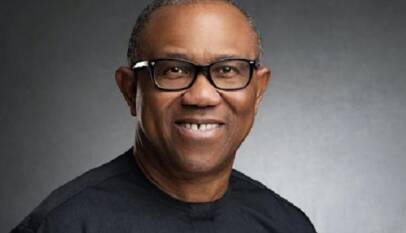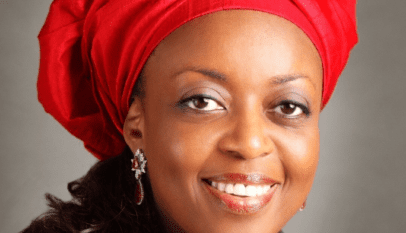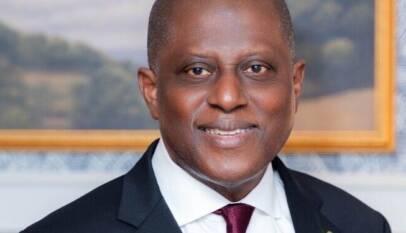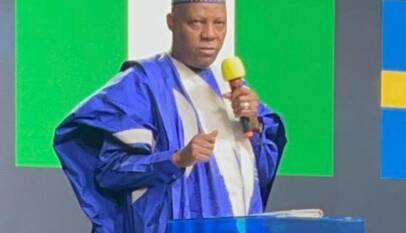Photo: Enugu Governor Peter Mbah dumping PDP for APC
Nigeria’s political landscape appears to be sliding toward a one-party structure as the ruling All Progressives Congress (APC) continues an unrelenting expansion that is dismantling the once formidable opposition, the People’s Democratic Party (PDP). The wave of defections sweeping across states has been described by analysts as a political tsunami that could redefine the country’s democratic balance.
Barely months after tightening its grip on the National Assembly, where it now commands well over two-thirds of the seats in both the Senate and the House of Representatives, the APC has extended its dominance to state legislatures.
On Friday, the entire membership of the Ondo State House of Assembly, all previously elected on the PDP platform, defected en masse to the ruling party. Their defection was accompanied by public declarations of support for President Bola Tinubu’s “Renewed Hope” agenda and the need for what they termed “political alignment with the centre.”
The momentum of this realignment has since shifted to the Southeast, where reports indicate that Enugu State Governor, Dr. Peter Mbah, will formally defect to the APC on Tuesday. According to multiple national dailies reports and sources, Mbah will not move alone. He is expected to be joined by twenty-four PDP lawmakers, 260 councillors, and the entire PDP state executive committee.
This move, if confirmed, would effectively collapse the PDP’s political structure in Enugu and deliver yet another symbolic victory to the APC in a region once considered impenetrable by the ruling party.
Across Nigeria, the APC’s political map now stretches wider than at any time since the return to democracy in 1999. The party currently controls about twenty-three of the thirty-six states of the federation, giving it a commanding spread across all geopolitical zones. In the North, it governs states such as Kaduna, Katsina, Kebbi, Borno, Gombe, Niger, Kwara, and Kogi, consolidating its traditional stronghold in the region.
The Southwest remains largely an APC bastion, with Lagos, Ogun, Ondo, and Ekiti all under its control. The party has also made deep incursions into the South-South and Southeast, capturing or absorbing states such as Cross River, Ebonyi, Imo, and Edo, and now closing in on Enugu. With these advances, the APC is estimated to control nearly 60 percent of states in the southern half of the country, a feat that was unimaginable just a few years ago when the PDP dominated the political space.
By contrast, the PDP, which once boasted of being Africa’s largest party, has been reduced to a handful of states including Bayelsa, Rivers (only PDP on paper), Taraba, Osun, Oyo, and Plateau. The party’s internal crises, factional disputes, and leadership struggles have weakened its ability to mount a credible opposition. Many of its members have sought refuge under the APC umbrella, citing both political expediency and the need to remain relevant in a rapidly changing political order.
Political observers warn that this trend could erode the foundation of Nigeria’s multiparty democracy. The concentration of power in one dominant party, they argue, threatens the checks and balances essential for accountability and transparency.
The APC, however, dismisses such fears, insisting that its growing dominance is a reflection of national consensus and effective leadership. The party’s National Publicity Secretary, Felix Morka, maintained that Nigerians are rallying around President Tinubu’s vision for economic revival, stability, and national unity. “This is not coercion,” he said. “It is conviction. People are moving toward progress, and the APC represents that hope.”
Inside the PDP, there is rising concern that the party may be approaching its most perilous phase since its defeat in the 2015 general elections. Some senior members have described the ongoing defections as a political hemorrhage, calling for urgent restructuring and grassroots revival to prevent total collapse.
The National Working Committee of the party is said to be holding emergency consultations to chart a survival strategy amid fears that more governors and legislators could soon follow the Enugu example.
As the APC celebrates its widening control, Nigerians are left to ponder the deeper implications of this sweeping political transformation. What began as routine defections has now taken on the shape of a national realignment that may redefine the boundaries of political competition.


